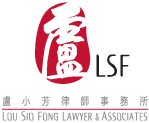Best Due Diligence Lawyers in Macao
Share your needs with us, get contacted by law firms.
Free. Takes 2 min.
Or refine your search by selecting a city:
List of the best lawyers in Macao
About Due Diligence Law in Macao
Due Diligence in Macao involves a comprehensive review and analysis of various financial transactions, business acquisitions, and compliance processes to ensure that all necessary legal standards and regulatory requirements are met. This legal process helps in identifying risks, assets, liabilities, and other critical factors that can impact the viability of a business transaction or operation. Macao's legal framework for Due Diligence is influenced by both local legislation and international standards, making it a vital area of practice for legal professionals in the region.
Why You May Need a Lawyer
There are several scenarios in which you might need legal assistance for Due Diligence in Macao:
- Business Acquisitions and Mergers: When acquiring or merging with another business, proper due diligence ensures that you are aware of all potential risks and liabilities.
- Real Estate Transactions: Conduct thorough due diligence to confirm property ownership, zoning laws, and any encumbrances or disputes.
- Regulatory Compliance: Organizations need to comply with local and international regulations, especially those related to anti-money laundering and countering terrorist financing.
- Investment Analysis: Investors conduct due diligence to evaluate the potential risks and returns associated with an investment.
- Litigation and Disputes: Lawyers can help gather all necessary information and documents during litigation or dispute resolution processes.
Local Laws Overview
Macao has several key laws and regulations related to Due Diligence that legal practitioners need to be aware of:
- Commercial Code: Governs business activities, contracts, and corporate governance, ensuring all transactions adhere to legal formalities.
- Anti-Money Laundering Law: Requires businesses to practice due diligence to prevent and detect money laundering activities.
- Data Protection Law: Details how personal data should be handled and protected during due diligence processes.
- Real Estate Law: Defines the procedures and due process for property transactions, including ownership verification and zoning regulations.
- Consumer Rights Protection: Ensures that customer data, rights, and interests are safeguarded during business transactions and disclosures.
Frequently Asked Questions
1. What is the main purpose of Due Diligence?
The primary purpose of Due Diligence is to identify and mitigate potential risks associated with a business transaction or operation, ensuring compliance with legal standards and making informed decisions.
2. How long does a Due Diligence process usually take in Macao?
The duration varies depending on the complexity of the transaction. It can range from a few weeks to several months.
3. What documents are typically reviewed during Due Diligence?
This can include financial statements, business contracts, licenses, employee records, and compliance documentation, among others.
4. Can Due Diligence be conducted by non-legal professionals?
While some aspects can be handled by accountants or consultants, legal professionals are essential for ensuring compliance with all applicable laws and regulations.
5. Are there any legal requirements for Due Diligence in investments?
Yes, particularly in areas like anti-money laundering (AML) and counter-terrorism financing (CTF) where strict compliance and reporting are required by law.
6. What is the cost associated with Due Diligence services in Macao?
The cost can vary widely depending on the complexity and scope of the work, as well as the fees charged by the legal professionals involved.
7. What are the risks of not performing Due Diligence?
Risks include financial loss, legal liabilities, regulatory penalties, and reputational damage.
8. Who typically initiates the Due Diligence process in a transaction?
Usually, the buyer or the investing party initiates due diligence to assess the risks associated with the transaction.
9. Is Due Diligence mandatory for all transactions?
While not legally mandatory for all transactions, it is highly recommended for substantial investments, acquisitions, and any high-stakes business deals.
10. Can Due Diligence findings affect the outcome of a transaction?
Yes, findings can lead to renegotiations, price adjustments, additional contractual safeguards, or even withdrawal from the transaction.
Additional Resources
For those seeking further assistance or information on Due Diligence in Macao, the following resources may be helpful:
- Macao Lawyers Association: Provides a list of licensed lawyers specializing in Due Diligence.
- Macao Trade and Investment Promotion Institute (IPIM): Offers resources and support for business transactions and investments.
- Macao Financial Services Bureau: Ensures compliance with financial regulations and anti-money laundering laws.
- Personal Data Protection Office (GPDP): Oversees the compliance of data protection laws during due diligence processes.
Next Steps
If you require legal assistance in Due Diligence, consider taking the following steps:
- Identify Your Needs: Determine the specific areas where you need legal advice or representation.
- Consult Professionals: Engage a lawyer or a team of legal professionals with expertise in Due Diligence to discuss your case.
- Gather Documentation: Collect all relevant documents and information that will be needed for the due diligence process.
- Schedule a Review: Arrange for a formal review and analysis with your legal team to thoroughly assess all aspects of your transaction or compliance needs.
- Follow Recommendations: Implement any recommendations or corrective actions suggested by your legal counsel to ensure compliance and mitigate risks.
By following these steps, you can effectively navigate the complex legal landscape of Due Diligence in Macao.
Lawzana helps you find the best lawyers and law firms in Macao through a curated and pre-screened list of qualified legal professionals. Our platform offers rankings and detailed profiles of attorneys and law firms, allowing you to compare based on practice areas, including Due Diligence, experience, and client feedback.
Each profile includes a description of the firm's areas of practice, client reviews, team members and partners, year of establishment, spoken languages, office locations, contact information, social media presence, and any published articles or resources. Most firms on our platform speak English and are experienced in both local and international legal matters.
Get a quote from top-rated law firms in Macao — quickly, securely, and without unnecessary hassle.
Disclaimer:
The information provided on this page is for general informational purposes only and does not constitute legal advice. While we strive to ensure the accuracy and relevance of the content, legal information may change over time, and interpretations of the law can vary. You should always consult with a qualified legal professional for advice specific to your situation.
We disclaim all liability for actions taken or not taken based on the content of this page. If you believe any information is incorrect or outdated, please contact us, and we will review and update it where appropriate.
Browse due diligence law firms by city in Macao
Refine your search by selecting a city.









